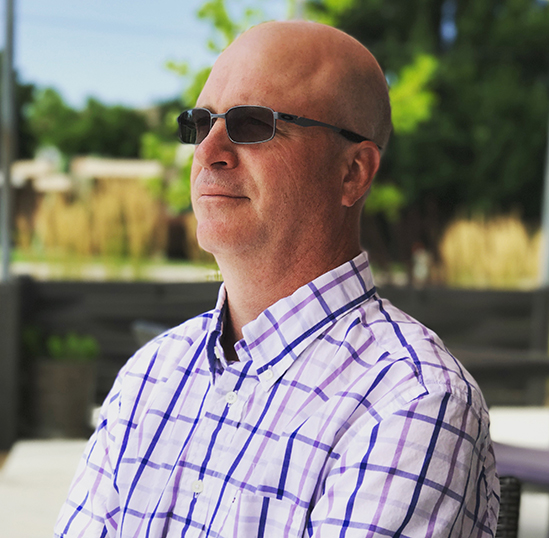St. Luke’s occupational therapist makes a difference teaching yoga in Treasure Valley prison


St. Luke’s occupational therapist Kaelyn Rogers is one of those people born with the ability – and desire – to help others, and she continues to find new and innovative ways to do so.
By day, she helps people at St. Luke’s Rehabilitation Hospital.
“I primarily work with stroke, spinal cord, MS, concussions,” Rogers said. “People get zoned in on the term ‘occupation’ and (think of) helping people get back to work. We do that, but it’s only part of it. We really focus on the life skills. It might start with getting dressed or getting in and out of the shower.”
Rogers uses traditional occupational therapy and therapeutic yoga with her patients.
“I had been traveling for about a year and a half before I came to Boise, mostly third-world countries, and I felt like I wanted to give back,” Rogers said. “(While traveling) I studied a lot about yoga and meditation, and I thought, ‘OK, now I have to use those tools.’”
This has led her to explore other outreach opportunities, including with the Idaho State Correctional Institution (ISCI). She reached out to Bryan Shipley, the ISCI chaplain, thinking yoga and mindfulness were a perfect fit for inmates there.
A few inmates had also approached Shipley about starting a yoga class.
“They were interested in doing some kind of yoga, but I didn’t have a facilitator,” Shipley said. “Then I got an email from Kaelyn, and that’s how it all started.”
Yoga’s focus of mindfulness, reflection and inner strength help participants with resiliency and self-management skills.
“I’ve been with this yoga class since the very beginning, and I’ve seen so many lives changed in here,” said Andrew Spicer, an inmate who’d initially approached Shipley about a yoga program. “It’s been absolutely amazing, and I can’t show enough gratitude for Kaelyn.”
To be involved with the class, inmates need to have a clean disciplinary record for the past six months. Spicer said it’s been a motivator for some inmates to avoid trouble.
“Some of these guys, they do yoga and they blossom,” Spicer said. “They get the mindfulness. They get more of a civil mindset.
“It’s changed my life. It’s changed my perspective, and once I get out, I’m going to continue to do this, because I’ve seen so much improvement in my life: physical, mental, health-wise, spiritually.”
“When you’re in prison, it’s a struggle. It’s a stressful situation in here, and the classes have helped me come to an inner peace and come to terms with where I’m at,” Christopher Thomas, another class participant, said.
Lack of stress-management and coping skills is a commonality among inmates.
Abuse or neglect in childhood, or Adverse Childhood Experiences, raise the odds of juvenile arrest by 59 percent. The likelihood of criminal behavior in adulthood increased by 28 percent according to figures from the National Institute of Justice. Violent crime increased by 30 percent according to another study.
It’s not uncommon for juveniles and adults to turn to drugs and alcohol to cope with their trauma or with underlying, untreated mental illness. The Idaho Department of Correct (IDOC) approximates 85 percent of its incarcerated population to have substance-abuse problems.

Rogers has been surprised at the program’s success.
“I was thinking, ‘Oh, I might be able to give them some tools for anger management,” she said. “It has actually been way more fulfilling than I expected. This has become the highlight of my week every week.
“A couple of guys who were in there for drugs have recently gotten out, and they told me, ‘You know, this is the first time I feel like I actually have the skill set to not go back to drugs.’ I think it’s helping them in ways that I didn’t anticipate, and that’s been incredible for me to see.”
“This is the coolest thing I’ve seen in over a decade of being in prison. I think it should be mandatory for everyone to attend some sort of class like this,” ISCI inmate and class participant Joshua McGiboney said.
“It’s not mandatory at this point in Idaho,” Shipley said. “But, what a positive thing for a person who may have anger issues or stress issues to have a process – through breathing, exercise and meditation – to calm themselves down and not repeat the cycle that probably got them in (prison) in the first place.
“There have been many conversations about how important this is and how well it’s working,” Shipley said. “I think we’re going to see more of these programs … in the future.”
“I think it’s important for people to know that we’re actually making some positive changes in here,” Cameron Redifer, an ISCI inmate and class participant, said.
Learn more about the program
Rogers is working to expand yoga offerings within IDOC, with the intention to support weekly classes in each of the minimum and moderate security prisons, as well as for recently released individuals and their families. She’s also training people to become more knowledgeable about and comfortable with volunteering within the prison system.
Learn more how to get involved and about Rogers’ other workshops at upwardinertia.com.
About The Author

Chris Langrill is a writer and copy editor for the St. Luke’s Communications and Marketing department.



